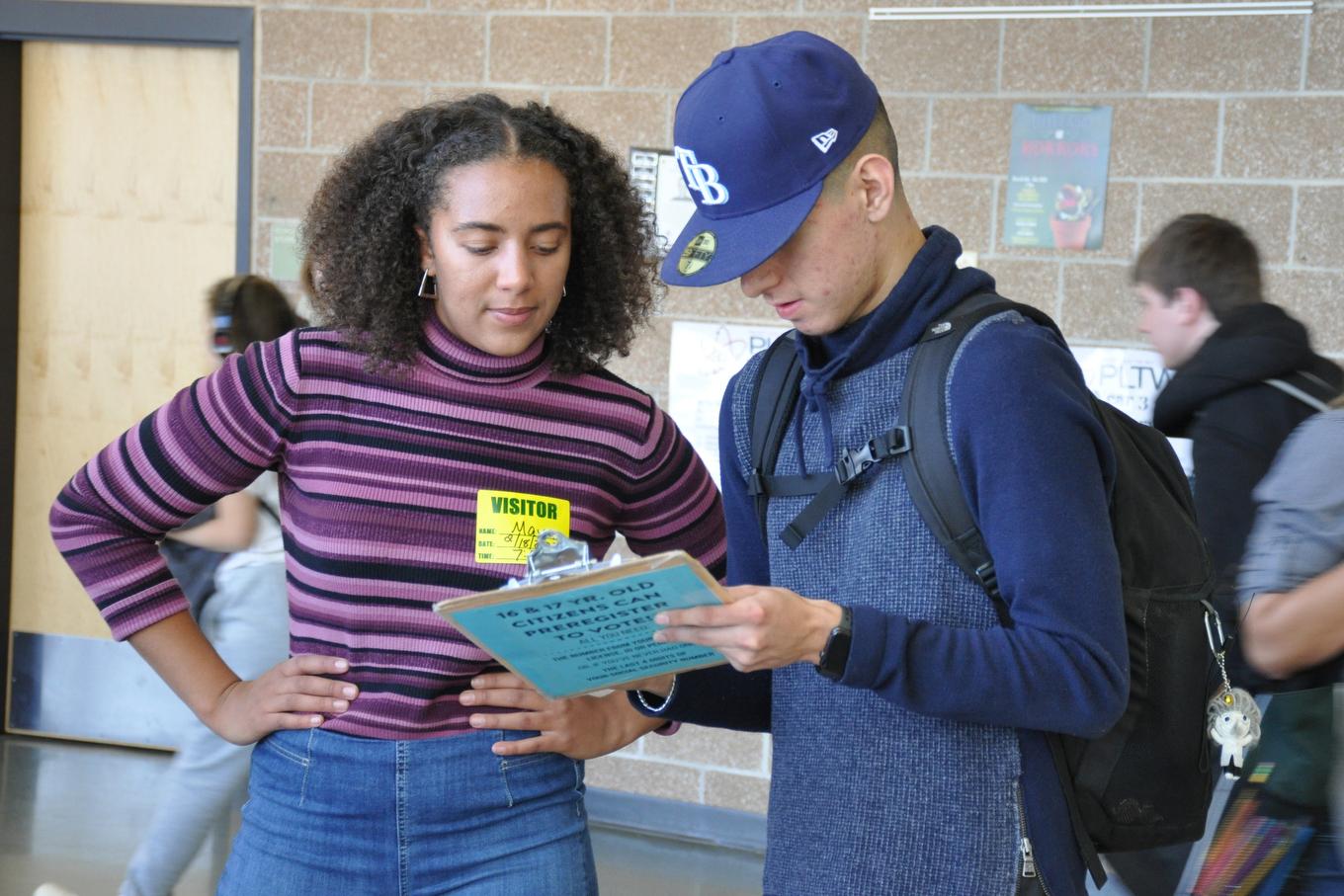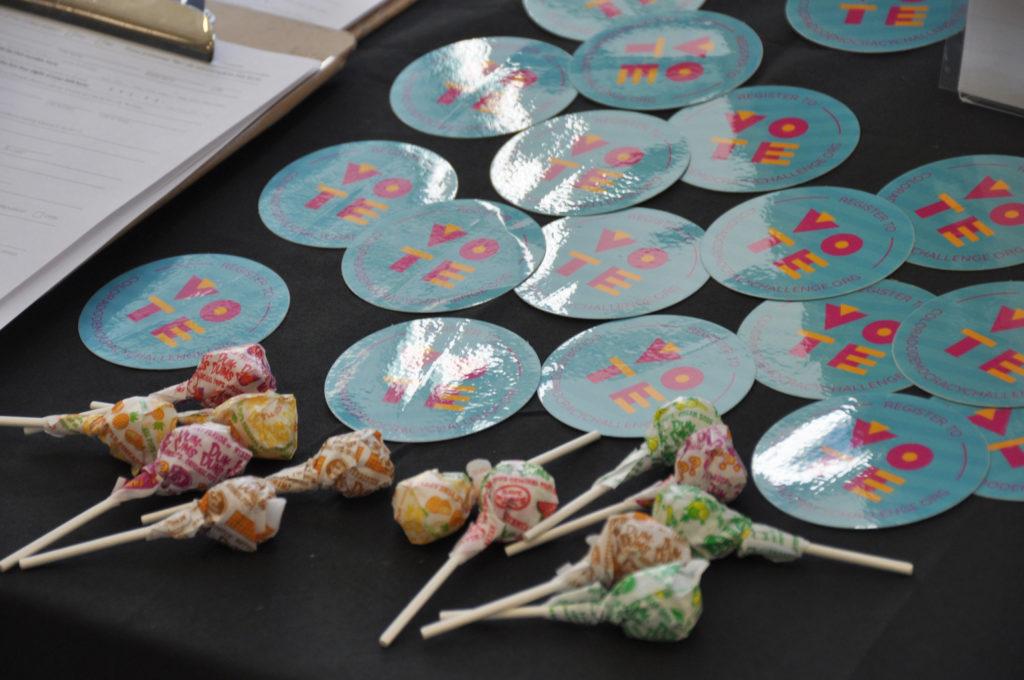
Late in the morning at Bear Creek High School in Jefferson County, students clustered around a large folding table in the middle of the main entrance. The table was set up by the Colorado Democracy Challenge.
The organization travels to schools to register youth voters and inform students about America’s democracy and the table is covered in registration forms and postcards, as well as stickers and donuts.
Students were quick to engage in a conversation about politics and the issues that are on their minds.
“I really care about student loans, free public university, universal healthcare, minimum wage,” said Zowie Werner, a senior.
Luna Ramirez-Osborne, also a senior, said her biggest concerns were universal health care and climate change. Other students said they were worried about border control, abortion and the economy.
For the first time in state history, 17-year-olds like them will have a chance to weigh in on those issues and vote in Colorado primaries — if they’ll be 18 by the November general election. About 24,000 teens are able to vote under the new law, according to the Colorado Secretary of State’s office. Organizations like the Colorado Democracy Challenge are working to get more of those young people signed up and ready to vote ahead of the March 3 end to primary voting.
At Bear Creek, the Colorado Democracy Challenge registered dozens of youth voters in their first hours. Youth voters tend to have low turnout, but research by Cambridge University shows someone who casts a ballot in their first three elections is more likely to vote for the rest of their lives.

“We want to make sure the students that are registering are also showing up and voting,” said Kaleena Kovach, a voter registration organizer for CDOC.
The group is nonpartisan. They don’t talk to voters about issues but focus on registration and turnout. At Bear Creek, organizers gave presentations in classrooms all around the school, passing out forms to unregistered students. Most students were excited about the opportunity to interact with democracy firsthand, but some had trouble deciding who they were going to vote for.
“You don’t have to commit yourself to a part, or something like that, just put your name on a piece of paper and make a difference in the world,” Valentino Bailey said.
Many students named Bernie Sanders, the independent senator from Vermont, as their first choice among the Democrats. A number of students also mentioned President Donald Trump, praising his approach to economic policy.
“Honestly, [I’m thinking about voting for] Bernie or Pete Buttigieg,” Ramirez-Osborne said. “Right now it’s just hoping on Bernie because I don’t believe that the United States, as a whole, is able to vote in a gay president.”
Students got their information on candidates from a variety of sources, ranging from The Hill to FOX Business. Nearly every student relied in part on their family for information.
“I’m not really into social media, I watch the news with my grandmother,” Bailey said.
Many said they drew influence from their family when deciding how to vote.
“With my family, I’m definitely voting in line, because we have very open conversations about it,” Werner said. “With the people I associate with, we definitely have similar beliefs. I think if I were to go outside the group that I surround myself with, and surround myself with more privileged groups, they probably would not agree with what I have to say.”
Valentino Bailey, also 17, said his community was a big factor in his decision making.
“I have family that’s Mexican, Latino, so I really don’t agree with what he’s doing either. Every vote makes a difference, I myself would like to make a difference which is why I chose to vote this year,” he said.
However, some students were in the more uncomfortable position of splitting from their family's vote. Marcus Fernandez-Munguia, a 16-year-old, said he was focused on the economy.
“I hate to say it, because my whole family is against it, but I kinda want to vote for Trump, if I could,” he said. “Obviously I’m 16 so I can’t. He’s very smart, economically, and he knows what he’s talking about.”
Fernandez-Munguia won’t be voting this year, but he pre-registered to vote. As soon as he’s eligible to cast a ballot, he’ll be automatically registered.
Henry Larson is a 17-year-old at Fairview High School in Boulder. He will vote for the first time in 2020. He is working on a story about climate change's effects on teenagers for CPR News.
Editor's note: An earlier version of this story had an incorrect spelling of Fernandez-Munguia's name.









